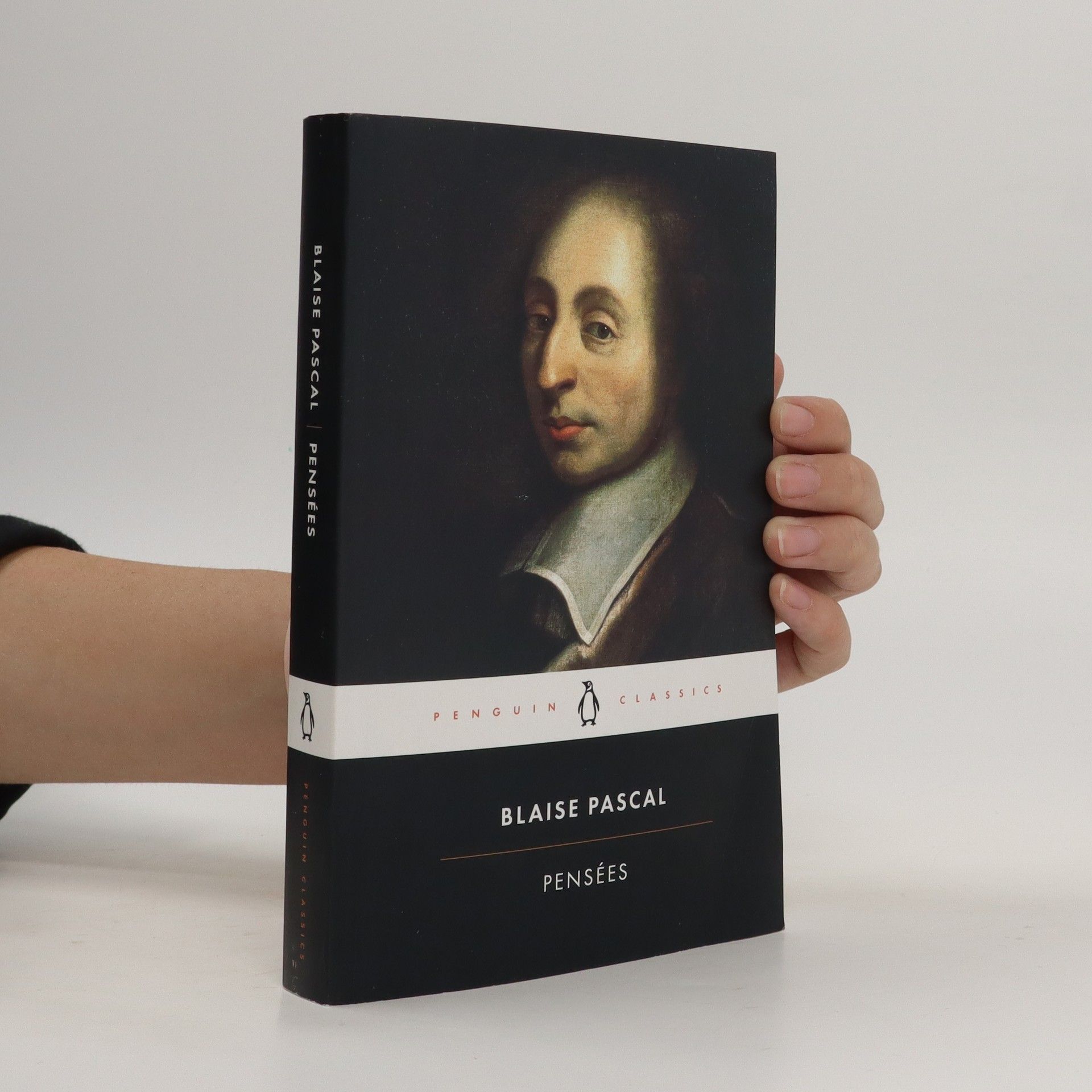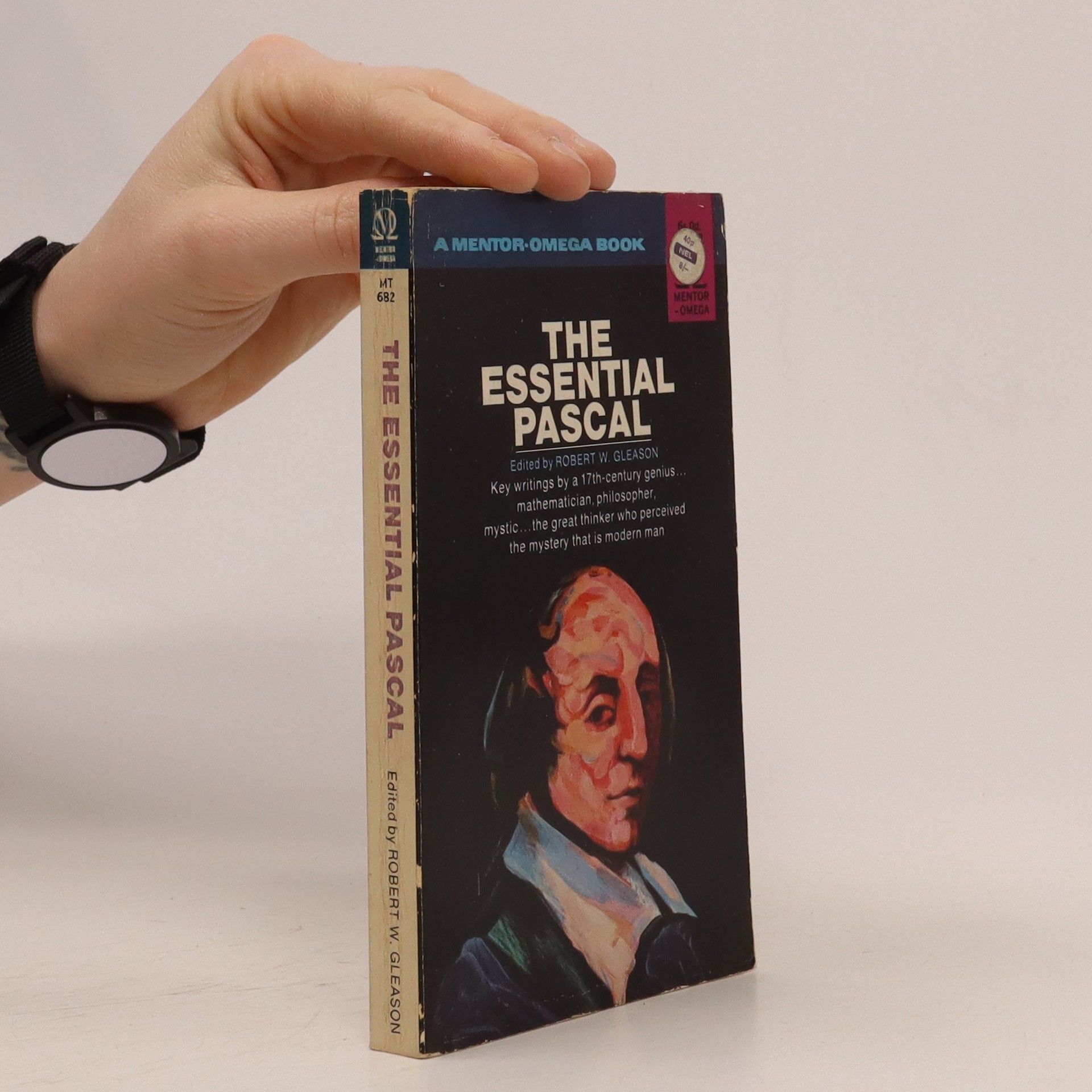The work features curated selections from Pascal's Pensées, offering insights into his philosophical and theological reflections. Known for its profound exploration of faith, reason, and the human condition, the text delves into existential questions and the nature of belief. This English translation makes Pascal's influential ideas accessible to a wider audience, highlighting his unique perspective on life's complexities.
Blaise Pascal Books
Blaise Pascal was a French mathematician and philosopher whose work delved into both scientific inquiry and theological contemplation. Alongside Pierre de Fermat, he laid foundational principles for probability theory. A profound spiritual conversion later in his life redirected his intellectual focus towards theology, leading to his renowned Provincial Letters. Pascal is widely recognized for his Wager, a philosophical argument concerning the rational choice of belief in God's existence.







A collection of philosohical fragments, notes and essays in which the author explores the contradictions of human nature in pscyhological, social, metaphysical and - above all - theological terms.
The Provincial Letters
- 232 pages
- 9 hours of reading
The book is a facsimile reprint of a scarce antiquarian work, preserving its historical significance despite potential imperfections like marks and notations. It aims to protect and promote important literature by providing affordable, high-quality modern editions that remain faithful to the original text.
Pensees and Other Writings
- 267 pages
- 10 hours of reading
For much of his life Pascal (1623-62) worked on a magnum opus which was never published in its intended form. Instead, he left a mass of fragments, some of them meant as notes for the Apologie. These were to become known as the Pensées, and they occupy a crucial place in Western philosophy and religious writing. This translation is the only one based on the Pensées as Pascal left them. It includes the principal dossiers classified by Pascal, as well as the essential portion of the important Writings on Grace.
Pensees (Royal Collector's Edition) (Case Laminate Hardcover with Jacket)
- 252 pages
- 9 hours of reading
Exploring profound themes of theology and philosophy, this collection features fragments that reflect Blaise Pascal's deep insights and intellectual struggles. Written in the 17th century, it encapsulates his thoughts on faith, reason, and the human condition, showcasing his unique perspective as both a philosopher and mathematician. The work serves as a significant contribution to existential thought and continues to resonate with readers seeking to understand the complexities of belief and existence.
Complete Works of Blaise Pascal (Grapevine edition)
- 778 pages
- 28 hours of reading
Renowned for his literary and philosophical contributions, Blaise Pascal's collection features his most celebrated works, such as "Pensées" and "Provincial Letters," alongside a selection of essays. This compilation showcases the brilliance of a 17th-century French thinker whose insights remain influential and engaging for readers and scholars alike, offering a profound exploration of human thought and experience.
The book aims to contribute to the preservation and repair of classic literature, highlighting the importance of maintaining original works for future generations. It reflects a commitment to safeguarding literary heritage, ensuring that timeless stories remain accessible and intact.
Pensées (Thoughts): [Translated by W. F. Trotter with an Introduction by Thomas S. Kepler]
- 210 pages
- 8 hours of reading
Blaise Pascal's "Thoughts" is a posthumously published compilation of his notes intended for a defense of Christianity, showcasing his keen observations on human life and intricate reasoning. Despite its incomplete nature, the work remains a classic in Christian literature, offering insights that resonate with discerning readers. The edition features W. F. Trotter's translation and includes an introduction by Thomas S. Kepler, printed on premium acid-free paper, ensuring both quality and accessibility for contemporary audiences.
Blaise Pascal's unfinished work, originally intended as a comprehensive Christian apologetics, consists of fragmentary notes that offer profound insights into faith and reason. Despite their incomplete nature, these thoughts are celebrated for their literary excellence and continue to resonate with readers today. This edition enhances the reading experience with an index, allowing readers to navigate Pascal's intricate ideas and arguments effectively.
